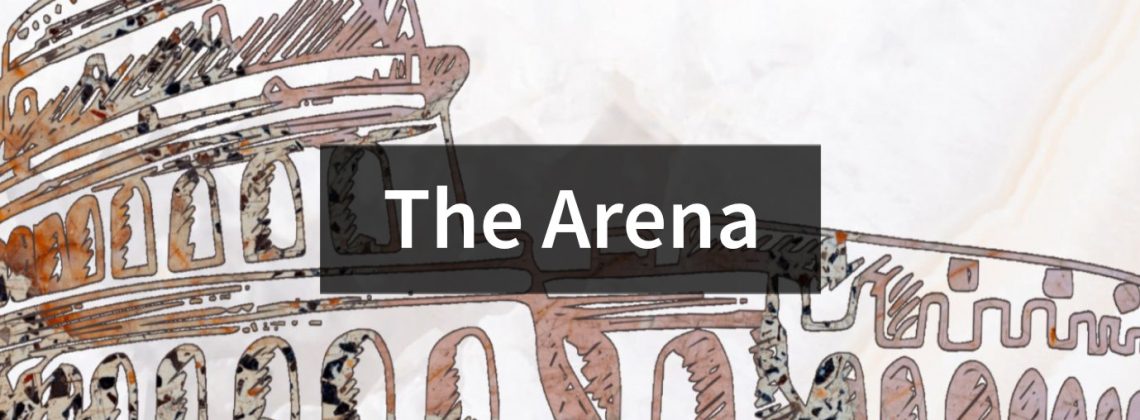

“A.I. is 100 times more important” than any other subject we’re talking about today, says David Brooks in last week’s PBS interview.
I came in thinking that A.I. was, like, it’s kind of important, and then maybe it’s as big as mobile. We all have cell phones… Now I think it’s the Industrial Revolution. It’s really just going to have pervasive effects on our workplace, our society and our culture. And with that come great dangers.
We’re all about to have that amazing tool. And so we will have great opportunities just to be all better at our jobs, with slight peril that it will take over the Earth.
My feeling as a historian who pays attention to technological revolutions but isn’t a specialist in them, is that it will be both: a great enhancement for those using it for productive things, and a world-and-life altering peril (in the sense that it will destroy the world that preceded it, and the life-ways that had adapted to that world).
We will absorb it into the warp and woof of our lives with astounding ease, and in no time it will be so much a part of the water we swim in, we’ll have difficulty reflecting on it and its significance. In part that will be because the people who can recall “the before times” will be getting old, while kids born today will stare blankly at the ones remaining, amused and bored by their tales of life without it.
Like smart phones, or on-demand streaming, or Wikipedia, they simply won’t be able to imagine life without AI enhancements and replacements. It will seem weird and a little pathetic to them. They’ll feel sorry for people who didn’t have it, like we do for folk who didn’t have modern plumbing in their houses and weren’t aware of germs.
It will be somewhat like (but also unlike in ways unimaginable) the automobile, television, and personal computer revolutions.
Automobiles have utterly transformed daily life, as well as infrastructure, government’s role, and etc. People used to walk to work. They had to live close. Services–such as grocery stores–had to be close, there were many of them, they were small. Those who could afford them had horses, and much time–or expense by hiring others–was absorbed in caring for the horses, learning how to handle them, etc. We now can be whisked to a hospital by an ambulance, but we have many more occasions to have to go to the hospital because of injuries in accidents. Courtship disappeared, replaced by dating. Adult supervision of the young was reduced, and with the addition of televisions and smartphones, largely eliminated. Old jobs were eliminated, new ones created. Environmental effects were massive.
We can’t see the new world just around the corner from us, but it’s rushing at us like a tsunami, about to wipe huge areas of life away, leaving new practices and habits in its wake.
If you are trying to scare me, it worked.
This by historian Walter Russell Mead was published a day-or-two after I wrote that, or I would have referred to it. It’s far more comprehensive, gives a lot more context, and is even more scary (if you like that kind of thing!).
“The Industrial Revolution was both soaring triumph and searing tragedy, glorious cultural and scientific achievement and unspeakable cruelty and crime. Far from being unique to that epoch, the mix of great good and great evil is what we see wherever we look in the long annals of our kind. The rise of the Roman Empire, the allied victory in World War II, the decolonization of Africa, and the history of the United States of America all combine these features of extraordinary accomplishment and shocking horror.
“That is how we human beings roll. Our story of progress is not a made-for-children television special. History is rated X, not G, crammed to the bursting point with violence, injustice, foul language, nudity, and smoking. We’ve sailed on bloody seas to get to where we are, and the outlook is for more of the same. Trigger warnings should be posted in every delivery room. The world is not a safe space, and the arc of history is nobody’s poodle.”
So, que sera, sera and all that. Hey, it’s been fun knowing you kids!
https://www.tabletmag.com/sections/news/articles/destined-live-quiet-times-progress-walter-russell-mead-via-meadia
John, thank you for this elaboration. It seems that each new human epoch brings delight and at the same time gives bad actors better tools of their trade. I do think that whatever human agency that we have should be exercised in limiting the evil new technologies make possible.